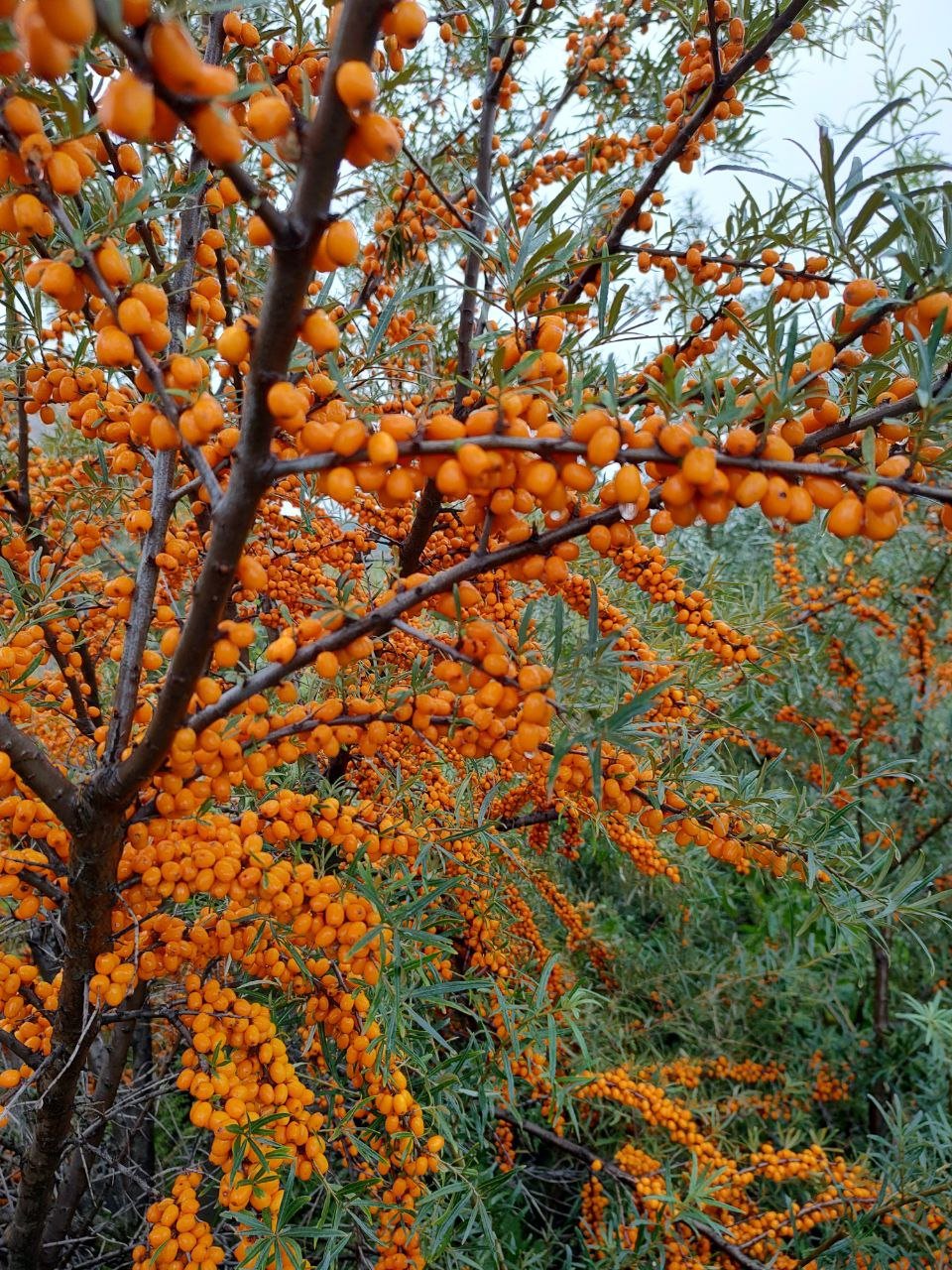SEA BUCKTHORN

Sea buckthorn from “Golden Berry” is not just a berry, but a true treasure trove of flavor and benefits.
In the fall, we await the bright orange clusters of sea buckthorn, which are not only tasty but also very beneficial. Our berries contain 18 of the 22 known amino acids, half of which are essential, making sea buckthorn an important component in the diet.
Sea buckthorn is rich in vitamins, minerals, and fiber, and in terms of its health benefits, it stands on par with the superfood – goji berries. Including it in your diet means you not only get a delicious berry but also a source of many beneficial substances.
What are the benefits of sea buckthorn?
It strengthens the immune system. Sea buckthorn contains flavonoids that increase the body’s resistance to infections. The berries are rich in selenium, known for its antioxidant properties, which strengthens immunity and improves fertility.
It serves as a preventive measure against early signs of aging. Sea buckthorn contains omega-3 and omega-6 fatty acids, which promote an increase in collagen levels responsible for skin elasticity.
It supports heart health. Sea buckthorn berries are rich in antioxidants that help combat the formation of blood clots, high blood pressure, and elevated cholesterol levels.
It protects the digestive system. These fruits are one of the few food sources of omega-7, which aids in the treatment and healing of stomach ulcers, as well as being a good source of fiber.
It saturates the body with vitamin C. Sea buckthorn contains vitamin C in amounts that are 80 times higher than tomatoes and 200 times more than apples, which is important for the normal functioning of the body.
Who should avoid eating sea buckthorn?
Although sea buckthorn is safe for most people, those with blood disorders should be cautious, as the berries may increase the risk of bleeding.

